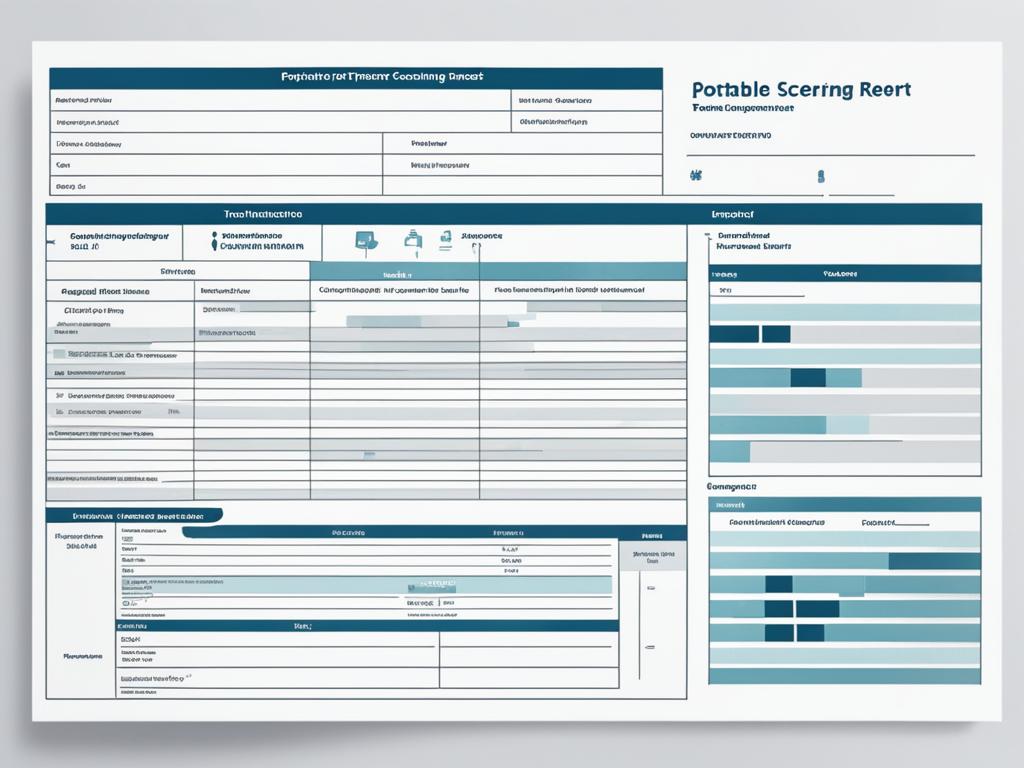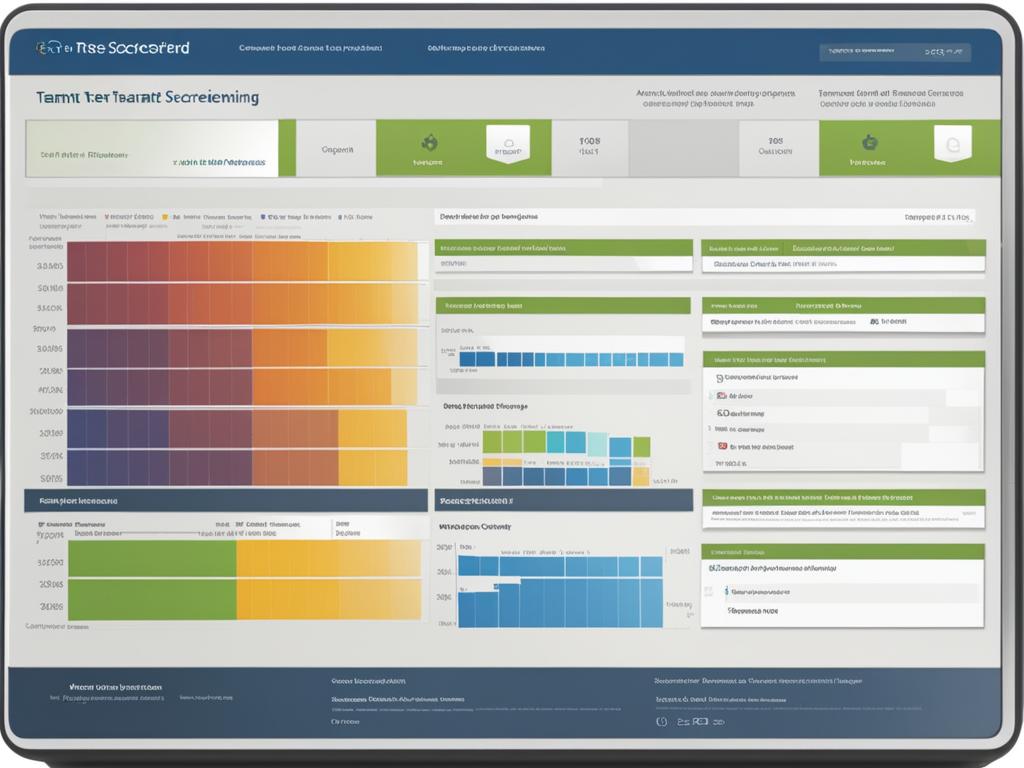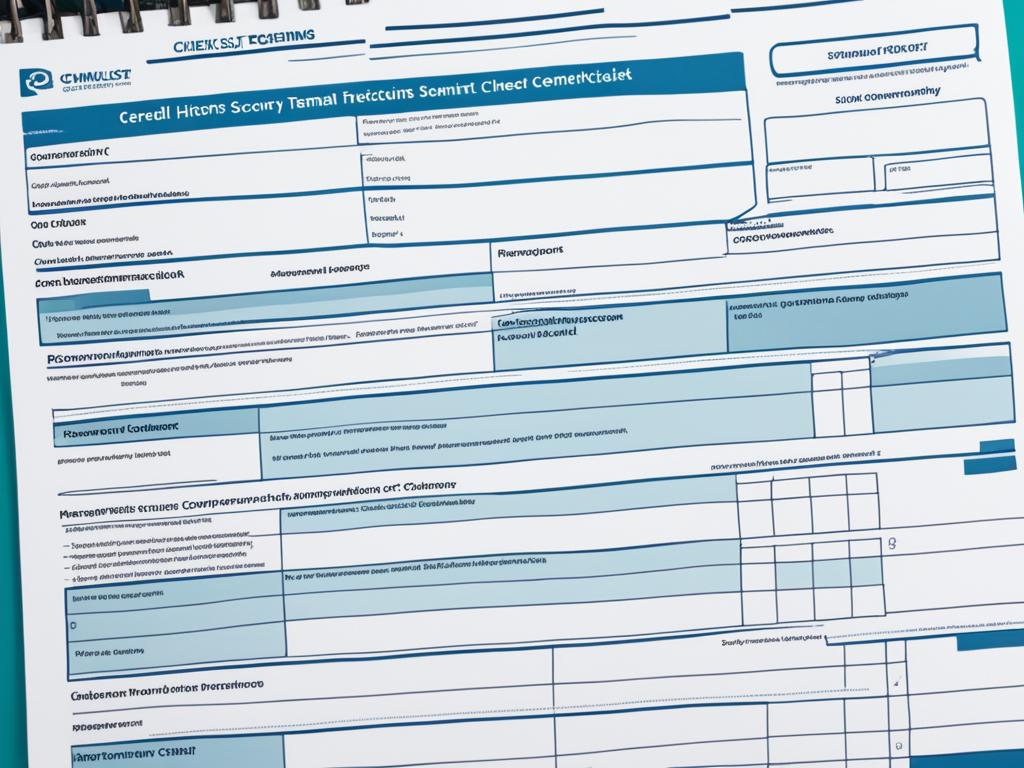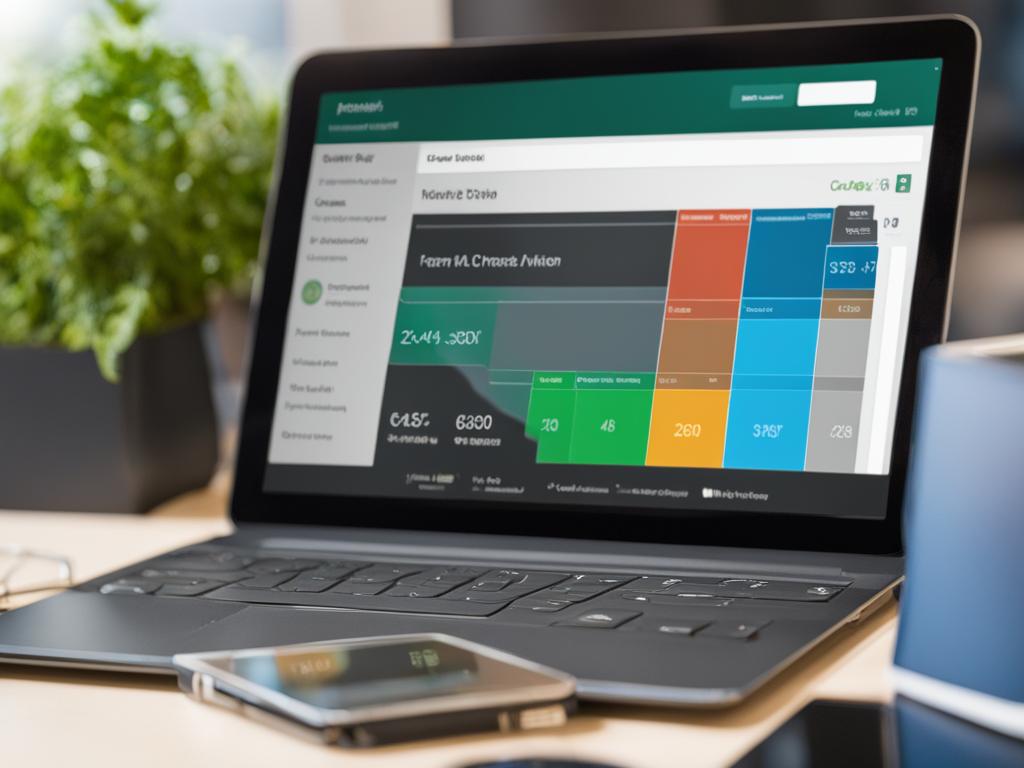Portable Tenant Screening Report Essentials
The pivotal tool reshaping today’s rental market is the portable tenant screening report, a resource designed to facilitate the rental process for both landlords and prospective renters. This single, reusable report, pioneered by legislative efforts in California through Assembly Bill 2559, provides a comprehensive background check that accompanies tenants in their search for the perfect home. Notably, companies like ApplyConnect are revolutionizing the market with services like “Apply Three,” where reliable tenants can apply to multiple properties with ease and reduced costs. As the concept gains traction, states are increasingly considering its benefits, albeit with variations in legal reception. These advancements signify a significant shift towards streamlining the background check process within the rental industry, reflecting a drive towards convenience and cost savings. Let’s delve into the essentials of these reports that are setting new precedents for securing rental housing.
Key Takeaways
- Portable tenant screening reports are vital tools that aid in optimizing the rental process.
- Legislation in states like California has laid the foundation for wider adoption and standardization.
- Services like ApplyConnect’s “Apply Three” exemplify industry trends toward efficient and economical screening solutions.
- Such reports bolster trust between landlords and potential tenants by ensuring reliable tenancy.
- While not yet a national standard, the trend is perceptible, with a growing number of states exploring similar legal frameworks.
The Growing Importance of Portable Tenant Screening Reports
As the landscape of real estate evolves, the significance of portable tenant screening reports becomes increasingly apparent. These reports offer a comprehensive view of a prospective tenant’s rental history, creditworthiness, and background, which are invaluable to landlords during the tenant selection process. The shift towards portable screening solutions mirrors a broader change in rental practices—driven by both new legislation and market trends that favor convenience and fairness.
Legislation Impacting Tenant Screening Reports
The introduction of laws in various states has ignited a transformation in how tenant background checks are conducted. Legislation in states like Colorado and California advocates for the adoption of reusable screening reports. This reduces the financial burden on tenants, who previously may have faced multiple fees for separate screenings with each application. Although the movement for ubiquitous legislation is in its infancy, it’s gaining traction, with numerous states exploring policies that align with tenant-friendly approaches.
| State | Legislation | Impact on Tenant Screening |
|---|---|---|
| Colorado | House Bill 1099 | Encourages reusable tenant screening reports |
| California | Assembly Bill 2559 | Allows for portable screening reports across multiple properties |
| Illinois | N/A | Adopting a more optional approach to portable reports |
| Maryland/Maine | Proposed Legislation Rejected | Choose not to mandate the use of portable reports |
Trends in Renters’ Market and Screening Practices
The renters’ market is reflecting a clear trend towards streamlining the rental screening process. Companies like ApplyConnect are at the forefront of this evolution, offering solutions that reflect the current tenant-friendly ethos by limiting ancillary costs associated with traditional tenant screening methods. The demand for more equitable and efficient rental practices suggests that portable tenant screening reports are not just a transient phenomenon, but a mainstay that reformulates the relationship between landlords and tenants, catering to a generation that values transparency and simplicity in rental transactions.
What is Included in a Portable Tenant Screening Report?
Understanding the depth and scope of portable tenant screening reports is crucial for any landlord seeking to strengthen their rental decision-making process. These reports are a cornerstone of modern tenant screening services, providing a triad of critical insights into prospective residents. With capabilities ranging from tenant credit check to rental background check, real estate professionals can paint a complete picture of an applicant’s record.

Credit History Analysis
An exhaustive credit history analysis is included as a fundamental element, highlighting the applicant’s financial health and ability to meet rental obligations. This comprehensive appraisal goes beyond a mere credit score, identifying patterns in bill payment, debt-to-income ratio, and overall credit behavior.
Criminal and Eviction Records
Rigorous examination of criminal and eviction records forms an essential part of the report, furnishing landlords with peace of mind regarding the safety and compliance of their potential tenants. This section ensures that past behaviors which may impact the community’s wellbeing are not overlooked.
Rental History Review
The report takes a deep dive into previous rental history, covering an applicant’s timeliness in rent payments, prior lease compliance, and feedback from past landlords. This historical analysis aids in predicting the tenant’s future tenancy behavior and overall reliability.
| Component | Description | Relevance to Landlords |
|---|---|---|
| Credit Analysis | Detailed report on credit score, debt, payments history | Assesses financial reliability and risk |
| Criminal Records | Check for past criminal infractions | Ensures safety and security of the property |
| Eviction History | Records of previous evictions | Indicates past rental compliance issues |
| Rental History | Examination of past landlord relationships and lease adherence | Evaluates tenant’s consistency and decorum |
Benefits of Portable Reports for Tenants
In the evolving landscape of property rentals, tenants stand to gain notable advantages through the implementation of portable tenant screening reports. This innovative approach to the rental screening process not only underscores significant financial benefits but also extends enhanced flexibility and security measures for renters nationally.
Saving Time and Money for Renters
The introduction of portable reports has markedly transformed the rental screening process, efficiently curtailing both the time and financial investment typically required by prospective tenants. By supplanting the redundant, traditional procedures with a single, reusable report, renters can conserve resources, ultimately contributing to a more economical and expedited housing search.
Flexibility and Security Enhancements
Enhanced flexibility is yet another hallmark of the portable report system, offering tenants the convenient option to apply to multiple rentals without the need to undergo repeated, invasive checks. Coupled with heightened security features that protect sensitive personal data, this modernized approach ensures a superior rental experience for all parties involved.
The table below outlines the financial benefits accrued by renters when utilizing portable tenant screening reports:
| Aspect | Traditional Screening | Portable Screening |
|---|---|---|
| Cost per Application | Multiple fees for each application | One-time fee for multiple applications |
| Time Investment | Extensive, for each individual application | Minimal, due to reusability of reports |
| Financial Security | Increased risk of excess spending | Cost-effective, prevents unnecessary expenses |
| Application Flexibility | Limited by additional cost barriers | Greater freedom in application choices |
The Role of Tenant Screening Services
As the rental market evolves, property managers and landlords are increasingly turning to online tenant screening services to optimize their operations. The benefits of such services are multifaceted, not only enhancing the efficiency of the screening process but also offering more comprehensive insights into prospective tenants.
Comprehensive Online Tenant Screening Solutions
Modern tenant screening services are designed to be thorough and far-reaching. These platforms provide a full suite of checks and reports, from credit histories to criminal background investigations. By consolidating this information in one place, landlords can access all relevant data quickly, making informed decisions with greater confidence.

Integration with Rental Application Processes
Seamless integration with rental application systems is what sets apart leading screening services. This integration facilitates a smooth transition from applicant interest to formal tenant evaluation, streamlining the process for both applicants and property managers. The ability to upload supporting documents, verify identities online, and track application status in real-time illustrates the synergy between technology and tenancy management.
| Feature | Benefit to Landlords | Benefit to Tenants |
|---|---|---|
| Credit and Criminal Checks | Quick access to essential background information | One-time submission of personal data |
| Eviction Histories | Insights into past tenant reliability | Transparent evaluation of rental history |
| Digital Document Management | Reduced paperwork and physical storage needs | Easy online submission and access to documents |
| Application Tracking | Real-time updates on the application process | Clear visibility into application status |
Platforms like ApplyConnect and Stessa not only expedite the traditionally cumbersome screening phase but also add a layer of depth to the evaluation. The result is an ecosystem that benefits all parties, ensuring a smoother and more reliable path from the initial application to signing the lease.
Understanding Tenant Credit Checks within Reports
As a landlord or property manager, evaluating a prospective tenant’s financial stability is crucial. One of the most telling indicators is their credit history, which is routinely examined through a tenant credit check. This examination forms the foundation of portable tenant screening reports, delineating the financial responsibility and potential risks associated with rental candidates.
A tenant’s credit report provides a comprehensive look at their financial dealings, including but not limited to credit scores. It sheds light on patterns in bill payments, the amount of outstanding debt, and the length of credit history, amongst other things. By assessing these details, landlords can anticipate the likelihood of timely rent payments and the overall risk of financial default.
Understanding a tenant’s credit check is akin to peering through a window into their financial soul. It reveals habits, responsibilities, and the capability to fulfill fiscal commitments, all critical to a landlord’s peace of mind.
Below is a detailed breakdown of the critical components usually found in a tenant’s credit check:
| Credit Score Range | Payment History | Current Debt | Length of Credit History | Types of Credit in Use | New Credit Inquiries |
|---|---|---|---|---|---|
| 300-850 | Record of payments on loans and credit cards | Total amount owed on accounts, differentiating types of accounts | Duration of established credit | Variety of credit lines such as retail accounts, credit cards, installment loans | Number of recent credit checks for applications |
A credit check is not solely about identifying red flags; it can be equally telling about a prospect’s positive financial behavior. A history of on-time payments, reasonable levels of debt, and a longer credit history can suggest a financially responsible individual.
Leveraging this information equips landlords with the ability to discern and select individuals who have demonstrated a consistent ability to manage their finances. In turn, this increases the probability of selecting tenants who will pay rent punctually, providing security and predictability in the rental agreement’s cash flow.
Compliance with Housing Laws and Regulations
Navigating the intricacies of current housing laws and regulations is an imperative task for landlords and property managers to uphold legal compliance. The screening process for potential tenants is heavily governed by such laws to prevent discrimination and promote fairness. The cornerstone of these legal frameworks is the Fair Housing Act, which sets forth a range of protections against discrimination in housing-related activities.
Navigating the Fair Housing Act
The Fair Housing Act is a federal law that prohibits discrimination on the basis of race, color, religion, sex, disability, family status, or national origin. Landlords must ensure that their tenant screening practices comply with this act, as failure to do so could result in severe legal consequences. This includes, but is not limited to, adopting uniform standards that apply to all applicants, avoiding disparate treatment, and providing reasonable accommodations for individuals with disabilities.
State-specific Legislation and Requirements
While the Fair Housing Act provides nationwide protections, many states and local jurisdictions have enacted additional housing laws that reflect region-specific concerns and regulations. These laws may include protections for additional classes not covered under federal law, such as age, marital status, or sexual orientation. Landlords must stay informed about the requirements in their specific state to ensure complete adherence to all legal mandates. The patchwork nature of these regulations requires a detail-oriented approach to ensure that none of the local statutes are inadvertently overlooked in the screening process.

Ensuring legal compliance is not just a matter of avoiding litigation—it also demonstrates to prospective tenants that a property is managed professionally and with integrity. Strategies to maintain compliance include keeping up-to-date with legislative changes, attending housing law workshops, and consulting with legal professionals who specialize in landlord-tenant law. With conscientious efforts to follow the Fair Housing Act and state-specific legislation, property managers can foster a fair, equitable housing market for all.
Creating an Effective Tenant Screening Checklist
The paramountcy of an efficient tenant selection process cannot be overstated. Establishing a reliable and legal tenant screening checklist is essential in nurturing trust and adherence to fair housing compliance. A thoughtfully composed checklist does more than streamline the acquisition of ideal tenants; it also significantly mitigates the risk of unintentional discrimination and legal repercussions.

An exhaustive tenant screening checklist encompasses various stages of the tenant lifecycle, ensuring no detail, however minute, is accidentally neglected. Below is a detailed depiction of what such a checklist might involve:
| Screening Stage | Checklist Items | Purpose |
|---|---|---|
| Initial Contact |
|
To gauge potential interest and weed out unqualified applicants early. |
| Application Receipt |
|
To collect essential information for further screening. |
| Background Checks |
|
To assess reliability, financial stability, and overall suitability. |
| Final Review |
|
To ensure applicants meet predetermined standards and understand lease obligations. |
| Decision & Notification |
|
To formally conclude the selection process with transparency. |
Employing a tenant screening checklist is a pragmatic approach for maintaining scrupulous records and illustrating a uniform tenant selection process. Furthermore, it is a tangible affirmation of a landlord’s commitment to fair housing compliance, showcasing that each applicant is evaluated equitably and without bias. While the specific elements may vary depending on the property and the jurisdiction, the fundamental objective remains steadfast—to ensure a meticulous and judicious tenant evaluation.
Portable Tenant Screening Report: Practical Use Cases
In the fast-paced arena of real estate, landlords and property managers often find themselves grappling with the challenges posed by competitive housing markets. Here is where the strategic value of portable tenant screening reports comes into play, offering a more efficient tenant screening process and equipping real estate professionals with adaptable screening tools. These reports are not just time-savers; they also represent a vital asset for prospective tenants vying for their ideal home.
Adapting to Competitive Housing Markets
With the stakes higher than ever, speed and agility are crucial in the tenant screening dynamics. Portable reports empower applicants by allowing them to permission access to their verified information to multiple landlords, thus standing out in crowded markets. This capability is invaluable in especially competitive housing markets, where timing can be the difference between securing a home and losing out to another applicant.

Streamlining the Tenant Selection Process
Landlords benefit immensely from portable tenant screening reports due to the streamlined nature of the selection process. By minimizing redundancy, property managers can quickly evaluate and compare comprehensive applicant profiles, making informed decisions with greater efficiency. These adaptable reports serve as a one-stop shop for a potential tenant’s financial, criminal, and rental background, thus simplifying this critical phase.
Ultimately, the integration of portable tenant screening reports within the leasing cycle is a testament to the evolving landscape of the real estate industry, pointing towards a future where efficiency and practicality win the day for both tenants and landlords alike.
Strategies for Landlords Adopting Portable Reports
Embracing portable tenant screening reports is a giant leap towards modernizing property management. These reports serve to streamline the vetting process, thereby enhancing efficiency in renting and reducing redundant administrative tasks. Moreover, they symbolize a recognition of the value of tenants’ time and money, inevitably improving tenant-landlord relationships.
Optimizing Property Management Efficiency
By integrating portable tenant screening reports into their operations framework, landlords can significantly reduce the time investment needed for the screening phase. These reports allow for rapid, informed decision-making, which is crucial in today’s fast-paced renting market.
Enhancing Tenant-Landlord Relationships
The utilization of portable reports reflects a trend towards convenience and consideration in the renting space. This proactive approach by property managers and landlords not only showcases their commitment to adopt advanced systems but also sets the stage for positive interactions with prospective tenants.

| Traditional Screening | Portable Screening Reports |
|---|---|
| Time-consuming individual screenings | Single report valid for multiple applications |
| Increased administrative burden | Streamlined operational process |
| Potential for tenant frustration | Enhanced tenant satisfaction and loyalty |
| Delayed tenant placement | Quicker tenant turnover and unit filling |
Landlord’s Perspective: Assessing Tenant Background Checks
Delving into the world of tenant screening can be a significant undertaking for landlords, who must weigh the delicate balance between intuition and factual assessments when considering potential renters. An in-depth analysis of a prospective tenant’s criminal history and eviction records forms the foundation of effectively assessing tenant background checks. These indicators often provide a transparent view of an individual’s past behavior and are essential in predicting their future tenancy conduct. Furthermore, the thoroughness of this evaluation process is bolstered by critical employment and income verifications, ensuring that potential tenants have the financial means to uphold their lease agreements.
Evaluating Criminal History and Evictions
ACUTRAQ reports, among other reputable screening services, furnish landlords with extensive details into an applicant’s past, highlighting any possible red flags pertaining to criminal behavior or previous evictions. This historical insight is instrumental in protecting property and fostering a safe community environment for all residents.
Importance of Verifying Employment and Income
To complement criminal and eviction history, confirming an applicant’s employment status and income is paramount. This dual verification acts as a safeguard, affirming the tenant’s ability to meet financial obligations. Proper income verification, paired with secure employment, lends itself to forecasting a stable cash flow and consistent rent collection.
Assembling all these elements into a cohesive analysis benefits landlords in making informed, judicious decisions, ultimately leading to more secure and profitable rental agreements. To further elucidate these points, let us consider the following comparative data:
| Criminal History and Evictions | Employment and Income Verification |
|---|---|
| Assess severity and frequency of offenses | Confirm current and stable employment |
| Review prior evictions and their circumstances | Verify income with pay stubs or tax documents |
| Evaluate the time elapsed since last offense | Assess income adequacy for rent and other expenses |
| Determine the relevancy of the record to tenancy | Check for long-term financial viability of the tenant |
In summary, thorough tenant background checks, inclusive of meticulous criminal, eviction, employment, and income vetting, are indispensable for landlords striving to ensure secure tenancies and uphold the integrity of their rental properties. While reports from ACUTRAQ and other providers lay the groundwork, the onus is on the landlord to synthesize this information into prudent tenant selections.

Technological Advances in Rental Background Checks
As the rental industry evolves, landlords and property managers are turning to digital screening tools to enhance the way they conduct tenant evaluations. By leveraging the latest technology, the accuracy in tenant screening has improved exponentially, contributing to more secure and successful tenant-landlord relationships.

The Shift to Digital Screening Tools
Innovations in the digital space have streamlined the previously cumbersome process of vetting potential tenants. Companies such as Stessa have adopted these technological solutions to provide landlords with user-friendly platforms for all their screening needs. Instantaneous access to credit, criminal, and eviction data ensures that decision-making is as swift as it is precise, breaking new ground in the pursuit of speedy background checks.
Improving Accuracy and Speed of Tenant Screenings
The integration of advanced algorithms and comprehensive databases into digital screening tools has made it possible for landlords to receive accurate and detailed tenant profiles in record time. This transformation is evident in the offerings from companies like ACUTRAQ, which have set new benchmarks for speedy background checks without compromising thoroughness or legal compliance.
| Feature | Stessa | ACUTRAQ |
|---|---|---|
| Screening Speed | Real-time results | Rapid comprehensive reports |
| Accuracy | Precise credit and rental history analysis | Detailed criminal and eviction checks |
| User Experience | Intuitive digital interface | Seamless integration with rental applications |
| Compliance | Alignment with housing regulations | Adherence to Fair Housing Act standards |
Conclusion
The rental market has undergone a significant shift with the adoption of portable tenant screening reports, reflecting a broader movement towards efficient renting and secure renting practices. Landlords and tenants alike are now navigating a transformed terrain where convenience, speed, and protection play pivotal roles. Portable tenant screening reports have demonstrated their capacity to streamline complex processes, allowing tenants to share their screening information across multiple applications while affording landlords rapid access to vital background information.
This innovation infuses the rental process with a sense of fairness and efficiency, safeguarding renters from redundant costs and administrative burdens. For landlords, the utilization of these comprehensive reports translates into more confident decision-making and a swifter path to securing reliable tenants. As states continue to enact legislation that accommodates such reports, and as digital technologies enhance their precision and accessibility, the landscape of renting will inevitably lean further into this progressive approach.
Ultimately, the synergy between evolving legal frameworks, advanced screening technologies, and the increasing demand for a streamlined rental experience underscores the importance of embracing portable tenant screening reports. This alignment advocates for a rental market where efficiency and security are not just aspirations but tangible realities for all parties involved. As we look to the future, it is clear that these reports will continue to play a central role in the evolving narrative of the American rental industry.
FAQ
What is a portable tenant screening report?
A portable tenant screening report is a reusable document that contains a potential tenant’s background information, including credit history, criminal and eviction records, and past rental behavior. These reports can be used when applying to multiple rental properties, eliminating the need for repeated screenings and reducing costs for applicants.
How do recent laws affect the use of portable tenant screening reports?
Recent legislation in states like California and Colorado has paved the way for the legal acceptance of portable tenant screening reports. These laws empower renters by allowing them to use a single report for multiple rental applications, thereby saving time and money, and encouraging a more streamlined rental process.
What trends are influencing the renters’ market and screening practices?
There’s an observable trend towards portability and efficiency in tenant screening practices. Renters increasingly seek time-saving and cost-effective ways to apply for rental housing, and landlords are adopting online tenant screening solutions that integrate with the rental application process. These changes reflect a market that values convenience and fairness.
What information is commonly included in a tenant screening report?
A tenant screening report usually includes a detailed credit history analysis, a check for criminal and eviction records, and a review of the tenant’s rental history. This information helps landlords to assess a tenant’s reliability and financial stability.
How do portable tenant screening reports benefit tenants?
Tenants benefit from substantial time and cost savings as they avoid the need to pay multiple fees for separate screening reports for each rental application. The portability of these reports also offers flexibility and enhances the security of the tenant’s personal information, as it is shared less frequently.
What services do online tenant screening platforms offer?
Online tenant screening services provide a range of tools to landlords and property managers, including but not limited to credit report generation, criminal background checks, eviction history checks, and integration with rental application processes. Services like ApplyConnect streamline these tasks, offering comprehensive solutions for rental screening.
Why is a credit check important in a tenant screening report?
A credit check within a tenant screening report provides landlords with insight into a prospective tenant’s financial health and history, including their ability to manage payments and debts. It is an essential factor in predicting whether the tenant will make rent payments promptly and responsibly.
How can landlords ensure compliance with fair housing laws during the screening process?
Landlords must follow structured procedures and use checklists to evaluate tenant applications uniformly, thus maintaining compliance with the Fair Housing Act and avoiding any discrimination claims. Staying informed about state-specific legislation and requirements is also crucial to legal compliance in the rental screening process.
Why should landlords consider using a tenant screening checklist?
Utilizing a tenant screening checklist ensures that landlords follow best practices during the selection process and do not overlook important steps. It promotes consistency, thoroughness, and adherence to fair housing laws, all of which contribute to more secure tenancies.
How do portable tenant screening reports affect the tenant selection process in competitive housing markets?
Portable tenant screening reports allow prospective tenants to quickly share their background information across multiple properties, providing them with an edge in fast-paced, competitive housing markets. This eases the tenant selection process for landlords, as they can access and review comprehensive reports more efficiently.
What are the advantages for landlords who adopt portable tenant screening reports?
Landlords can optimize their property management operations by reducing administrative tasks and expediting the vetting process using portable reports. They also enhance the tenant-landlord relationship by demonstrating respect for the tenant’s resources, which can lead to better interactions and retention rates.
What are the essential factors landlords focus on during tenant background checks?
Landlords typically scrutinize criminal history and previous eviction records as part of the tenant background check. Verifying the tenant’s employment and income is also essential, as it provides a clearer picture of the tenant’s capability to meet rent obligations consistently.
How are digital screening tools improving tenant screenings?
Digital screening tools revolutionize tenant screenings by enhancing the accuracy and speed of data aggregation and analysis. They enable rapid turnaround times for screening reports without compromising the depth and quality of the tenant’s background check, facilitating a more efficient renting process.

